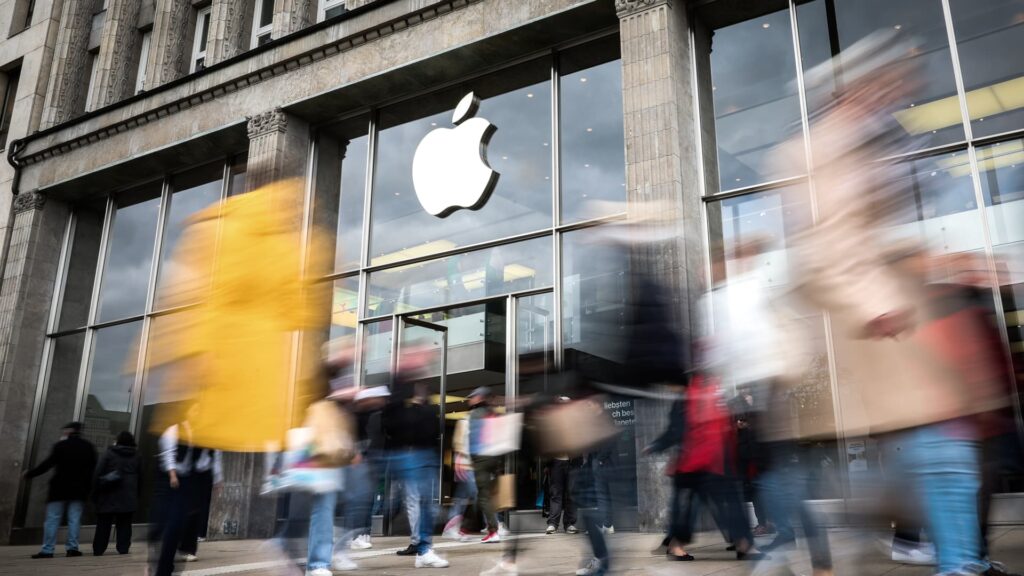

Shares of Apple surged 6% on Friday as investors cheered better-than-expected fiscal second-quarter results and the announcement of the biggest stock buyback program in U.S. corporate history. In theory, Apple’s $110 billion stock buyback program should provide a boost to its share price. It creates additional buying pressure in the market and, by reducing the share count, should increase earnings per share and make it more attractive to investors. However, recent history shows that spending billions on share repurchases isn’t guaranteed to make the stock a runaway winner. Dan Nathan, principal of RiskReversal Advisors, said on Thursday’s edition of ” Fast Money ” on CNBC that Apple has already been buying back stock, so it “doesn’t make a whole heck of a lot of sense” for that to fuel a rally. “Over the last three fiscal years, on a quarterly basis they’ve been averaging $20 billion in share repurchases. So they’ve been retiring these shares,” Nathan said. And that previous buying hasn’t made the stock a major success. Even with Friday’s bounce, Apple’s stock is still down for the year and has been underperforming some of its Big Tech rivals for even longer. AAPL YTD mountain Shares of Apple are still down year to date despite Friday’s bounce. “They’ve been buying that, and the stock has massively underperformed the Nasdaq. So investors have made the decision that that cash that they have sitting on the balance sheet is probably better off earning that 5% then going back and buying their stock,” Nathan said. Apple isn’t alone in seeing its buybacks fail to create a breakout in its stock price. The Invesco Buyback Achievers ETF (PKW) has underperformed the S & P 500 ETF year to date and over the past 12 months. The fund tracks U.S. companies that have reduced their outstanding shares by at least 5% over the past 12 months. Apple is not included in the fund’s holdings. The buyback ETF’s underperformance is not a matter of being weighed down by smaller companies. The five biggest holdings in the modified market-cap weighted fund are all underperforming the S & P 500 so far this year. For example, top stock T-Mobile is up just 2.8% in 2024, compared to 7.5% for the broader market.